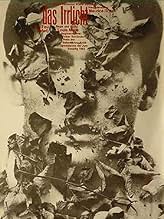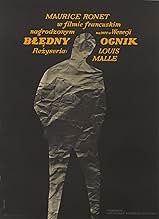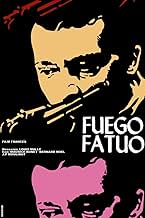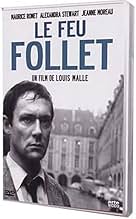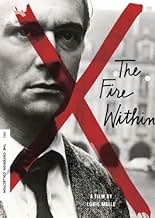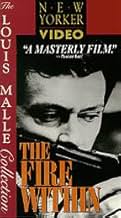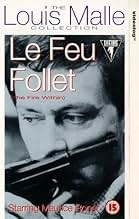Depressed Alain Leroy leaves the clinic where he was detoxified. He meets friends, acquaintances and women, trying to find a reason to continue living. Will this help him?Depressed Alain Leroy leaves the clinic where he was detoxified. He meets friends, acquaintances and women, trying to find a reason to continue living. Will this help him?Depressed Alain Leroy leaves the clinic where he was detoxified. He meets friends, acquaintances and women, trying to find a reason to continue living. Will this help him?
- Director
- Writers
- Stars
- Awards
- 2 wins & 2 nominations total
René Dupuy
- Charlie
- (as René Dupuis)
- Director
- Writers
- All cast & crew
- Production, box office & more at IMDbPro
Featured reviews
10paula-60
This is a mesmerising film about suicide as a rational way out. Ronet is wonderful in the role, sweetly sad, boyishly charming, tragically self-aware. His loving, well-meaning friends he visits on the way to the final "checking-out" are an interesting study and their inability to connect with Ronet or perceive where he's heading is poignant. For me, the best Louis Malle ever. The choice of music is great as well.
"The Fire Within" (French, 1963): Directed by Louis Malle, scored by Eric Satie. This is a perfect visual reason to use black and white with tons of gray. It is two days in the life of a young, popular man who has returned to his acquaintances, friends and ex-lovers, after vanishing into a program for alcoholics
a program he found comforting, and did NOT want to leave. He searches through his relationships for a reason to continue his life, whether as-is or anew
but overriding any thoughts of the future is his current state of total depression. His friends continued their lives during his absence, they continue their fast-paced, challenging repartee during his visits, and they will clearly continue after his leaving. "The Fire Within" is a quiet, observational film, interrupted only for conversations that seem to have substance, yet offer no solutions. It has one goal, and meets it very well.
Beautifully detailed black and white study of a man looking for a reason to go on living and not really finding it. Updates the excellent 1920s novel on which it is based to the 1960s without sacrificing anything of the former's timeless relevance. To give a (very) rough point of reference, it is something of a subdued Left Bank version of "La Dolce Vita", although Malle's film has none of the frantic burlesque episodes of LDV. Rather, the feel of the film is consistently weary and melancholic. Poetic and moving, it's an existentialist classic.
THE FIRE WITHIN is a drama about a former alcoholic, who is at the crossroads between life and death in a state of a deep depression. It is based on the novel "Will O' the Wisp" by Pierre Drieu La Rochelle.
Alain, a recovering alcoholic at a rehabilitation clinic in Versailles suffers with a depression. He often thinks about suicide, but still tries to find some valid reasons for living. He is in complete contrast with a behavior of his friends, which further enhances his internal conflict...
Mr. Malle gently touches sore points of a depressed man. His hero is empty and defeated man, who is trapped between a drunken past and an uncertain future. Many of the protagonists, who are full of compassion and love, going through his frustrating life. He's a lost soul, who can not let go of his depressive everyday life. However, a man, without an imagination and love, must find his own peace and certainty. A recovery from alcohol is an ironic view of a collapsed life.
Regardless of a state of his mind and heart, his tragic appearance is not quite clear. This is a kind of flaw of this film, because the main protagonist has condemned himself to a tragic end, before he has considered any options. An authentic scenery emphasizes his escape from any opportunities in life.
Maurice Ronet as Alain Leroy has offered a convincing performance. He is a lonely man who helplessly wanders...search, and then run away from love and certainty.
Life is a kind of agony in this case.
Alain, a recovering alcoholic at a rehabilitation clinic in Versailles suffers with a depression. He often thinks about suicide, but still tries to find some valid reasons for living. He is in complete contrast with a behavior of his friends, which further enhances his internal conflict...
Mr. Malle gently touches sore points of a depressed man. His hero is empty and defeated man, who is trapped between a drunken past and an uncertain future. Many of the protagonists, who are full of compassion and love, going through his frustrating life. He's a lost soul, who can not let go of his depressive everyday life. However, a man, without an imagination and love, must find his own peace and certainty. A recovery from alcohol is an ironic view of a collapsed life.
Regardless of a state of his mind and heart, his tragic appearance is not quite clear. This is a kind of flaw of this film, because the main protagonist has condemned himself to a tragic end, before he has considered any options. An authentic scenery emphasizes his escape from any opportunities in life.
Maurice Ronet as Alain Leroy has offered a convincing performance. He is a lonely man who helplessly wanders...search, and then run away from love and certainty.
Life is a kind of agony in this case.
Le Feu Follet or "Will o'the wisp" as it can be translated into English is one of the most important philosophical films made by the great master of French cinema Louis Malle.It is based on a book written by Pierre Drieu la Rochelle who was influenced by Dadaism. Although this film talks of a difficult albeit dark theme of suicide the film's overall mood is not at all gloomy. This is because there are plenty of scenes infused with day to day humor.The film is about a protagonist who has lost all interest in life.Maurice Ronet,a major French film star of the sixties plays the lead role.He is a sort of celebrity among his circle of socialites and he is fed up of their useless company.The film portrays the last days of a person suffering from a drug habit.In some ways this film is an attack on middle class or French bourgeoisie.Although the protagonist is a part of it,he nevertheless makes vain attempts to untangle himself from it.If a separate genre of suicide films is formed, this film will easily find a proud place in that category.
Did you know
- TriviaFor the first two days, filming was done in color. However, director Louis Malle realized that this was a distraction from the story, so he decided to film in black-and-white. An assistant also later declared that the shooting atmosphere on the set was rather gloomy.
- GoofsAs Alain walks on the streets of Paris, the crew (pushing the dolly) is visible on the shop windows he passes by.
- Quotes
Alain Leroy: I'm killing myself because you didn't love me, because I didn't love you. Because our ties were loose, I'm killing myself to tighten them. I leave you with an indelible stain.
- SoundtracksTrois Gymnopédies
Written by Erik Satie
- How long is The Fire Within?Powered by Alexa
Details
- Release date
- Country of origin
- Official site
- Language
- Also known as
- A Time to Live and a Time to Die
- Filming locations
- Production company
- See more company credits at IMDbPro
- Runtime
- 1h 48m(108 min)
- Color
- Sound mix
- Aspect ratio
- 1.66 : 1
Contribute to this page
Suggest an edit or add missing content

![Watch Bande-annonce [OV]](https://m.media-amazon.com/images/M/MV5BODdiNzczOTktMmMxMC00ZGQ0LTg4YWItZWEzN2FkZTViODk1XkEyXkFqcGdeQXRyYW5zY29kZS13b3JrZmxvdw@@._V1_QL75_UY281_CR0)
